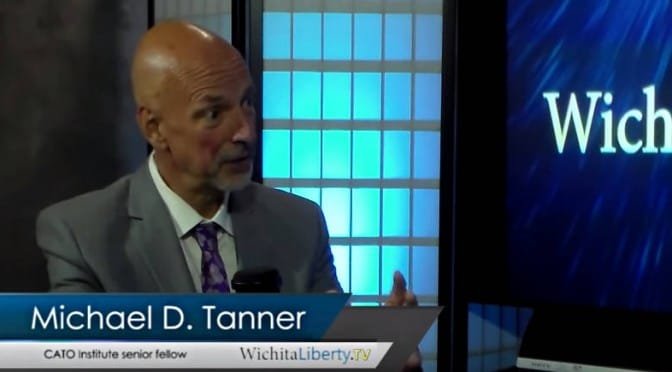Sedgwick County taxpayers have been generous with funding for Wichita Area Technical College, and the former county manager has recommended reducing its funding.
During the July 16, 2014 meeting of the Sedgwick County Commission, county manager Bill Buchanan presented the recommended budget for 2015. It included a cut in funding for Wichita Area Technical College in the amount of $150,000. In response to a question, Buchanan told the commissioners:
“The new president has been assertive and aggressive in trying to deal with their financial issues. They have, he has turned that financial, that institution around financially. They are in pretty healthy shape. They have a fund balance that’s relatively strong, and it’s in my opinion that our subsidy, although it was critical in the beginning, is less critical in their operations now, and perhaps it would be time for us, when we face our own fiscal issues, to reduce their funding so we can address some of ours.”
Under the leadership of Chair Dave Unruh, this reduction in funding was approved.
At the January 7, 2015 meeting of the commission, again under the leadership of Unruh, the commission heard an off-agenda item to restore $50,000 of the funding for 2015, making the cut $100,000. That item passed. Being an off-agenda item, there is little or no public notice. Commissioner Karl Peterjohn noted this in his remarks: “I frankly would feel much more comfortable if we postponed this issue until we could get it published in the paper and have at least whatever public attention that that would generate provided, as opposed to taking another Off Agenda item that’s going to increase county spending.”
In support of Peterjohn’s motion to delay the decision for a week, Commissioner Richard Ranzau expressed concern over the lack of financial information made available to commissioners. He also repeated the manager’s recommendation that WATC needs less county funding: “Well, I’d like to have more financial information. It’s my understanding that since the state has increased funding for Vocational Ed, they’re doing very well, their reserves increased significantly, and that’s why, I mean, I was told the reason we could reduce it $150,000 was because they were doing so well. I support what they’re doing out there, but if they’ve had an influx of money from the state, a result of Vocational Ed legislation then I think it’s appropriate to adjust our spending, and I’m not prepared to increase it by $50,000 without more financial information, and that’s why I support Commissioner Peterjohn’s motion to postpone this a week so we can get more information and make a more educated decision on this. There is really no reason for hurry through this in my estimation.”
In summary, the Sedgwick County manager recommended that commissioners reduce funding to WATC, as its need for county funding has declined. Under commission chair Unruh, the commission did so, in the net amount of $100,000. The same amount is proposed for cuts this year. In light of this, the criticism of WATC beneficiaries like Spirit Aerosystems is unfounded.
By the way, the commission has been criticized for considering off-agenda items since Ranzau became chair in January, with the Wichita Eagle editorial board describing one off-agenda vote as “abrupt.” In another op-ed, Rhonda Holman complained that “The move came in an off-agenda item, with little opportunity for GWEDC and the business community to argue against it.”
Whether off-agenda items are good or bad public policy seems to depend on the whim of the Eagle editorial board.














